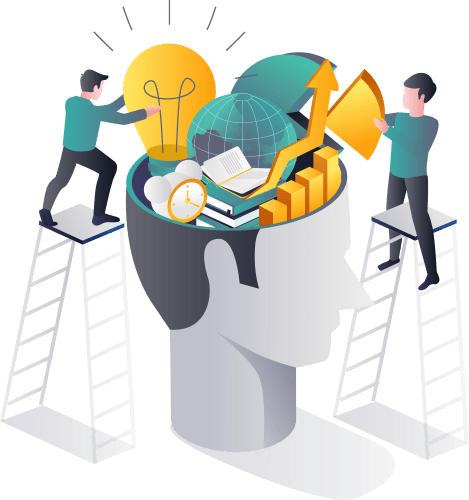Change is constant, but some shifts are so big that they redefine industries, societies, and even how we live our daily lives. These are known as megatrends, large, transformative forces that evolve over time but have long-term impacts.
From technology to demographics, these trends influence everything from the way we work to the way we consume. Let’s discuss the key megatrends shaping the next decade and why they matter.
Digital Transformation and AI Integration
Technology is moving faster than ever, and digital transformation is no longer optional—it’s essential. At the heart of this shift is artificial intelligence (AI), which is driving innovation across industries like healthcare, finance, and manufacturing. Companies are using AI to automate tasks, personalize customer experiences, and analyze massive amounts of data.
For individuals, AI tools like chatbots, virtual assistants, and personalized learning platforms are becoming part of everyday life. As AI advances, concerns over job displacement, data privacy, and ethics will continue to be central conversations.
Why it matters: Businesses that don’t adapt could be left behind, and workers will need to continuously upskill to remain relevant in a more automated world.
Aging Populations and Changing Demographics
In many parts of the world, populations are ageing. Countries like Japan, Italy, and Germany already face the challenges of having more retirees than working-age citizens. Meanwhile, in regions like sub-Saharan Africa, youthful populations are creating opportunities for economic growth.
This demographic shift will affect healthcare systems, pension plans, housing, and job markets. Companies are already developing products and services tailored to ageing populations, from smart home devices for seniors to telemedicine solutions.
Why it matters: Governments will need to balance the demands of older populations while creating opportunities for younger generations. Businesses that cater to ageing consumers could see major growth.
Climate Change and Sustainability
The effects of climate change are becoming harder to ignore, with extreme weather events, rising sea levels, and resource shortages affecting millions. In response, sustainability is no longer a “nice-to-have”—it’s a necessity.
Governments are implementing stricter environmental policies, while businesses are being pushed to adopt greener practices. From renewable energy solutions to sustainable packaging, industries are rethinking how they operate. Consumers also play a role, with many choosing eco-friendly products and supporting brands committed to sustainability.
Why it matters: Companies that prioritize sustainability will be better positioned to thrive in a world that increasingly values environmental responsibility.
Urbanization and Smart Cities
By 2050, it’s expected that nearly 70% of the world’s population will live in cities. This urban migration is leading to the development of smart cities—urban areas that use technology to improve infrastructure, transportation, and overall quality of life.
Smart cities rely on data and connected devices to optimize everything from traffic flow to energy consumption. Innovations like autonomous vehicles, digital payment systems, and real-time air quality monitoring are already being tested in cities around the world.
Why it matters: As cities grow, efficient infrastructure will be key to managing resources and providing residents with a high quality of life.
The Future of Work and Education
Work and education are undergoing major changes. Remote work, hybrid models, and the gig economy have reshaped traditional job structures. At the same time, lifelong learning is becoming essential as technological advances continue to evolve the skills needed for employment.
Educational institutions are increasingly offering online courses, boot camps, and flexible learning options. Meanwhile, businesses are investing in employee training programs to keep up with industry demands.
Why it matters: Individuals who embrace continuous learning and adaptability will have a competitive edge, while organizations that foster upskilling and flexibility will attract top talent.
Health and Wellness Innovation
Health is no longer just about treatment—it’s about prevention and overall well-being. Advances in medical technology, wearables, and personalized medicine are transforming how we approach health.
Wearable devices can track everything from heart rates to sleep patterns, giving individuals real-time insights into their well-being. Genetic testing and personalized treatments are also on the rise, allowing for more targeted and effective care.
Why it matters: With increased awareness of physical and mental health, businesses in fitness, nutrition, and wellness will see growing demand.
Global Power Shifts and Geopolitical Changes
The global balance of power is shifting as emerging economies gain influence. Countries like China and India are playing larger roles in international trade and politics, while traditional powers like the U.S. and Europe face challenges maintaining dominance.
Geopolitical tensions over trade, technology, and resources are likely to persist. Companies will need to navigate these complexities as supply chains become more interconnected and susceptible to disruption.
Why it matters: Businesses operating on a global scale will need to be agile, adapting to changing trade agreements and geopolitical risks.
Understanding megatrends is not just about staying informed; it’s about proactively planning for the future. By aligning your financial strategies with these trends, you can position yourself for long-term success.
For personalized advice tailored to your circumstances, consider scheduling an appointment with one of our advisors. We’re committed to helping you become financially prepared for life’s transitions.









